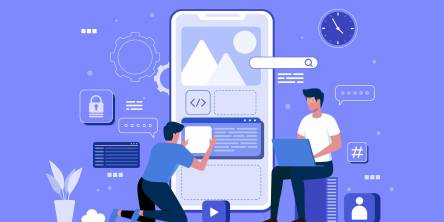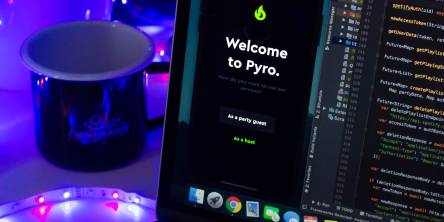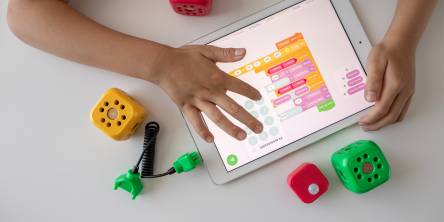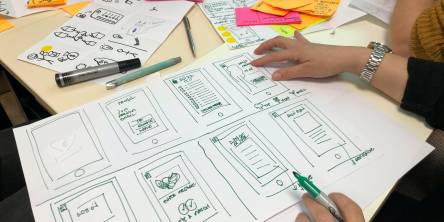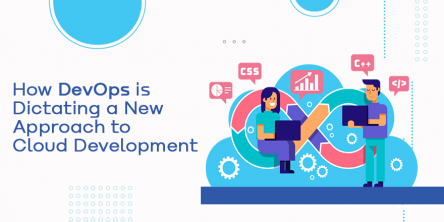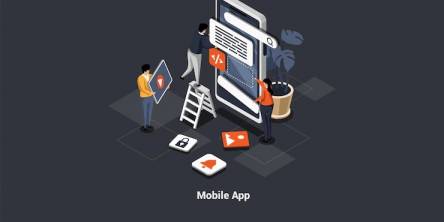Android Pie vs iOS 12: Is There a Clear Winner?

Given the highly digital world that we live in, it isn't surprising to see that mobile app development is all the rage right now. And understandably so -- it has not only made consumers' lives easier but also served as an exceptional resource for business, delivering ace results and profits. But in order to fully harness the power of mobile apps, it is important to stay at top of all the latest developments in all aspects, including any progress and changes in reference to mobile Operating Systems (OS) in the market.
As well know, Android and iOS are currently the two leading OS and let's just say that their parent companies know how to keep things exciting as they regularly bring in exceptionally advanced features and updates. This, in turn, can make it quite tricky when you have to pick between the two. But don't worry, because we put together a nifty comparison of the latest iterations of each of these two platforms, i.e. Android Pie and iOS 12 so that decision can become a little easier for you.
1. Virtual assistants
Last year, Google introduced new voices for Google Assistant, which, by the way, is capable of handling a lot of things, including a grouped command or a series of questions. Besides that, the tech behemoth is also experimenting with making the Google Assistant sound sufficiently human to engage in a brief conversation with other human beings.
Siri, on the other hand, with the upgrades it received in iOS 12, focuses on ensuring iPhones are able to foretell what the users need before they even look for it. iOS 12 gets Shortcuts, an app that allows the user to configure profiles that go through a pre-determined process when they utter specific keywords. Nonetheless, the Apple virtual assistant has a long way to go if it even wants to get close to what Google Assistant is capable of.
2. Gesture control
Though Google did introduce official support for notches and navigation gestures with Android Pie, the OS still isn't completely gestural. Like it still depends on the back button, making the experience feel kind of incomplete.
On the other hand, iOS 12's gesture control game is sorted especially since it didn't take iPhone X too long to bring both notches and navigation gestures into vogue.
3. Augmented reality
Both Google and Apple introduced substantial updates for their respective ARKit and ARCore at their respective developer conferences last year. But as far as playing with AR apps go, Google offers an iPhone-to-Android multiplayer feature called Cloud Anchors.
iOS 12 too gets a multiplayer feature that allows iPhone users with iOS 12 to interact in the same augmented reality environment alongside each other.
4. Overall performance
Google brought in Project Treble that seeks to address the issues associated with pushing updates in Android. It can differentiate between the bulk of Android from the UI tweaks and customizations governed by OEMs, thus allowing updates to be pushed quickly and more regularly.
iOS 12 takes a different approach in this regard, focusing on growing its reach to a wider audience base. iOS 12 is capable of supporting a large variety of devices from Apple's stables, going all the way back to iPad Air and iPhone 5S.
We'll be completely honest with you -- it is nearly impossible to pick a winner between iOS 12 and Android Pie since each of these OS' brings with it its individual set of novelties and features. So, before you decide to go for iPhone app development or choose Android, be sure you evaluate your options in accordance with your business' requirements.
Similar Articles
Mobiles and by extension, mobile apps are the basis for the modern mobile device and take it beyond a mere communication tool. In today’s world, information has to be available at our fingertips and people want mobile applications to do instantly what websites used to do before, give information and details instantly, anytime & anywhere
In the ever-evolving landscape of app development, embracing innovation is not just a choice but a necessity. Enter serverless architecture, a transformative paradigm reshaping how we approach app development.
EdTech developers leverage modern technology to create immersive and engaging learning apps. A successful product relies on solid technology, including front-end frameworks like React.js, offering efficient development and incorporating cutting-edge features like gamification and voice recognition for a standout user experience in the education industry
Internet of Things, or IoT, is a fast-growing concept that promises a transformation in how we live and work. It enables us to connect and control smart devices such as wearables, medical devices, sensors & more using mobile apps. IoT has impacted many aspects of our lives, and some of the most notable are home building, logistics, healthcare, and more.
Mobile app development has become an essential part of the digital ecosystem as mobile devices have become more prevalent than desktops or laptops. Regarding mobile app development, two popular approaches are Xamarin and native mobile app development.
With React Native becoming one of the preferred tools for developing mobile and web apps, there has been a growing focus on outsourcing software development based on this language
With over 6.3 billion estimated smartphone users worldwide, mobile app usage is growing exponentially. Studies have shown that Americans check their phones 262 times daily, once every 5.5 minutes! People check their phones at home, at work, on the street, while eating, in bed, and cars.
With the number of companies embracing digital solutions growing continuously, there is also an increasing demand for cloud services. Cloud development services help businesses (small or big) take advantage of digital transformation and to move their infrastructures to the cloud.
Businesses nowadays are fully enmeshed in the outstaffing and outsourcing trend. In order to boost production and take advantage of the expertise of specialized experts, it is safe to assume that modern professionals are more reliant on outsourcing

